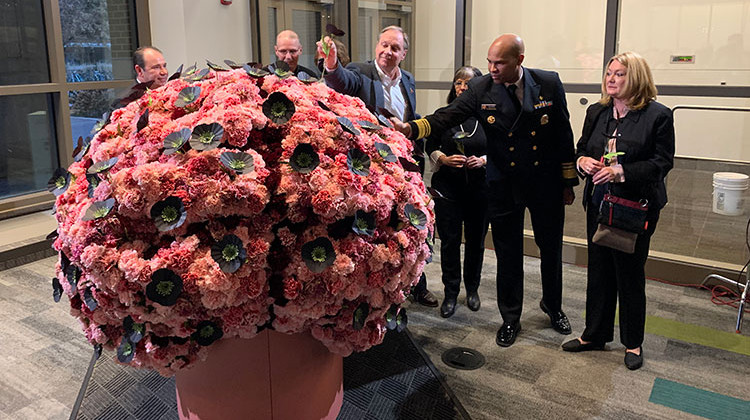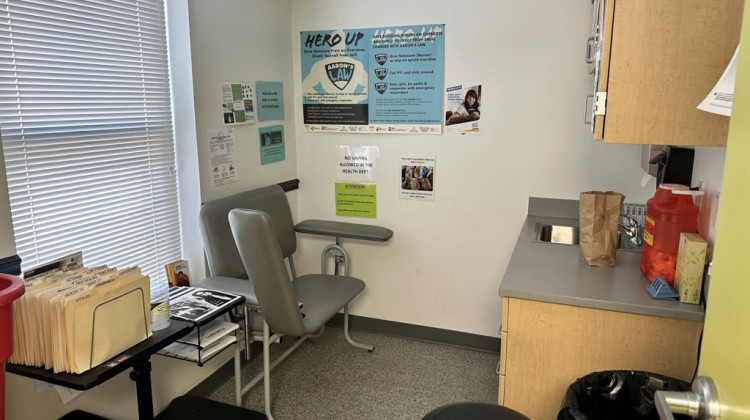
U.S. Surgeon General Dr. Jerome Adams (second from right) pulls a flower from a brain-shaped sculpture meant to symbolize some of those who've died from drug addiction.
Stan Jastrzebski/WBAAU.S. Surgeon General – and former Indiana Health Commissioner – Jerome Adams says additional screenings could offer Indiana college students more information about their potential for drug overdose and addiction.
Speaking Monday at Purdue University, Adams talked about what he called his own family’s genetic predisposition to addiction, and suggested that first-year students could benefit from taking an exam which correlates adverse childhood experiences with a likelihood for addiction later in life.
“So at freshman orientation, you could think about screening people for adverse childhood experience so they become aware that ‘hey, I’m at risk and that’s okay, but that means that I need to control the environment that I’m in and be especially careful,’” Adams says.
In a wide-ranging, hour-long talk about the nation’s opioid crisis, Adams also suggested almost everyone should carry the overdose reversal drug naloxone.
“If you walk through downtown Lafayette, if you walk through Indianapolis right now, the chances are gonna be greater that you’re going to be asked to respond to an opioid overdose than they’re gonna be that you’re gonna be asked to administer CPR to someone,” he says.
Despite using some of his presentation to praise the work of Indiana lawmakers in increasing treatment options and reducing the stigma surrounding drug addiction, Adams side-stepped questions after the event about whether the state should loosen sentencing guidelines for those convicted of drug use.
He also shied away from advocating for supervised injection sites, where drug users may more safely inject and have access to treatment if needed – in part, he says, because lawmakers are still loathe to approve such measures.
“I feel like I’m gonna get more bang for my buck promoting naloxone availability and promoting expansion of syringe service programs than trying to convince communities to take on yet one more controversial area,” Adams says.
Currently, only nine of Indiana’s 92 counties offer even a syringe exchange program.
Adams also correlated a shortage of capable U.S. soldiers with the nation’s opioid crisis. He says seven in ten people could not even qualify to serve in the armed forces because of poor health or drug problems.
“So our nation’s poor health isn’t just a matter of chronic disease 20 or 30 years down the road. We’re a less safe country because we’re an unhealthy country. And nowhere is that more evident than, again, in the opioid epidemic.”
Adams says doctors -- including himself -- were long told to prescribe as many opioids as patients wanted, so they’d give higher ratings to the care they received.
 DONATE
DONATE







 Support WFYI. We can't do it without you.
Support WFYI. We can't do it without you.